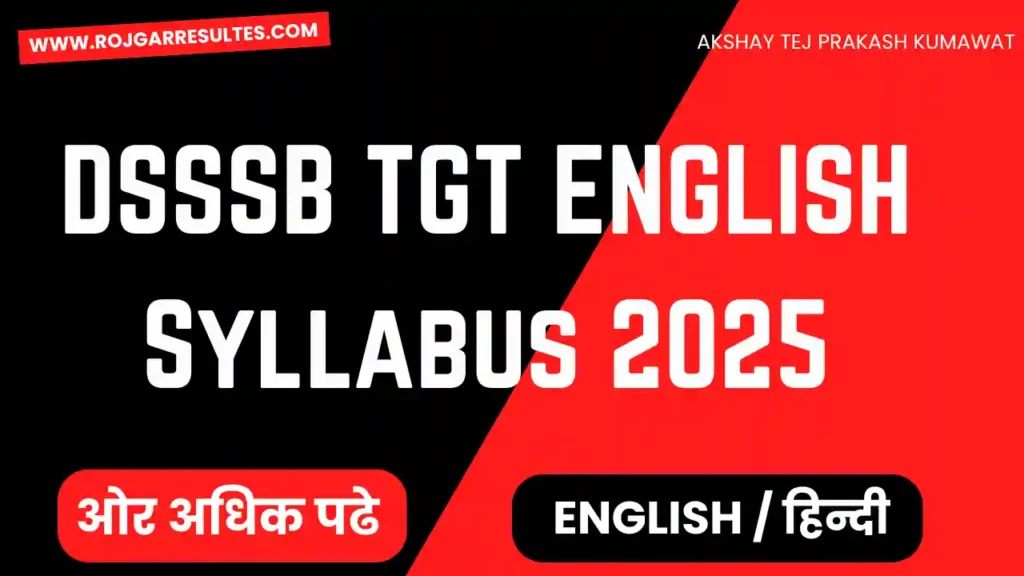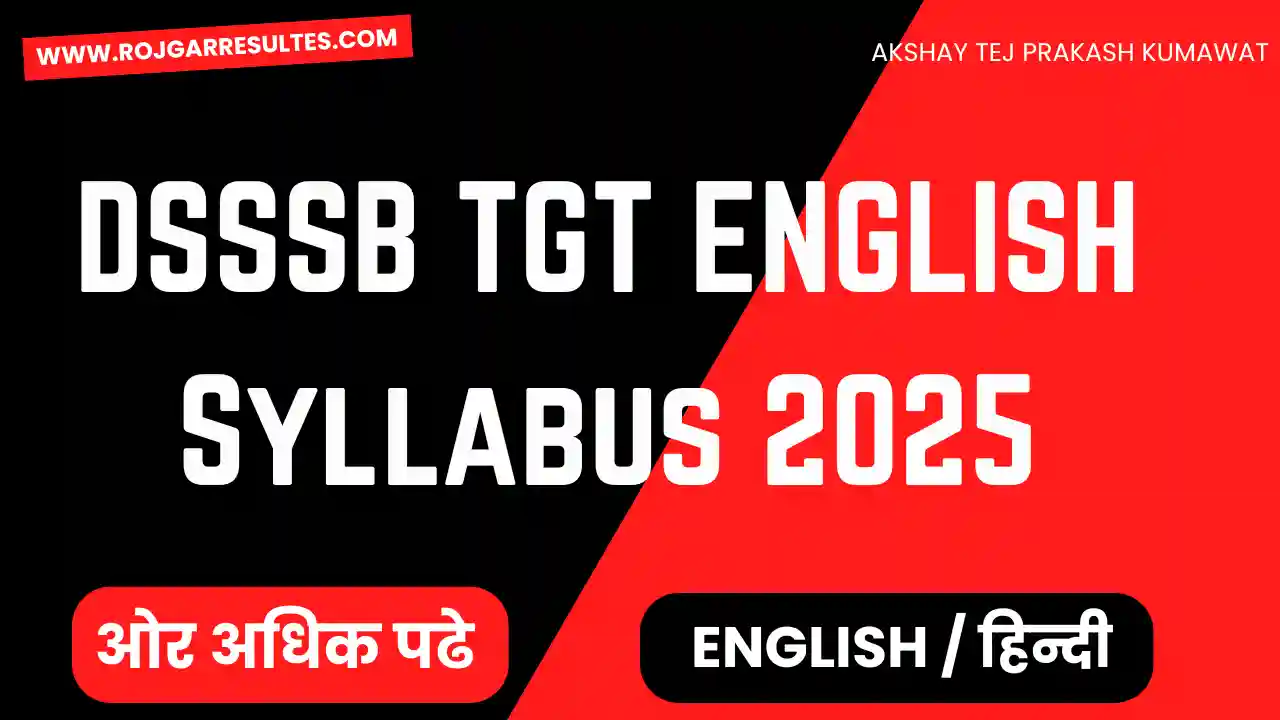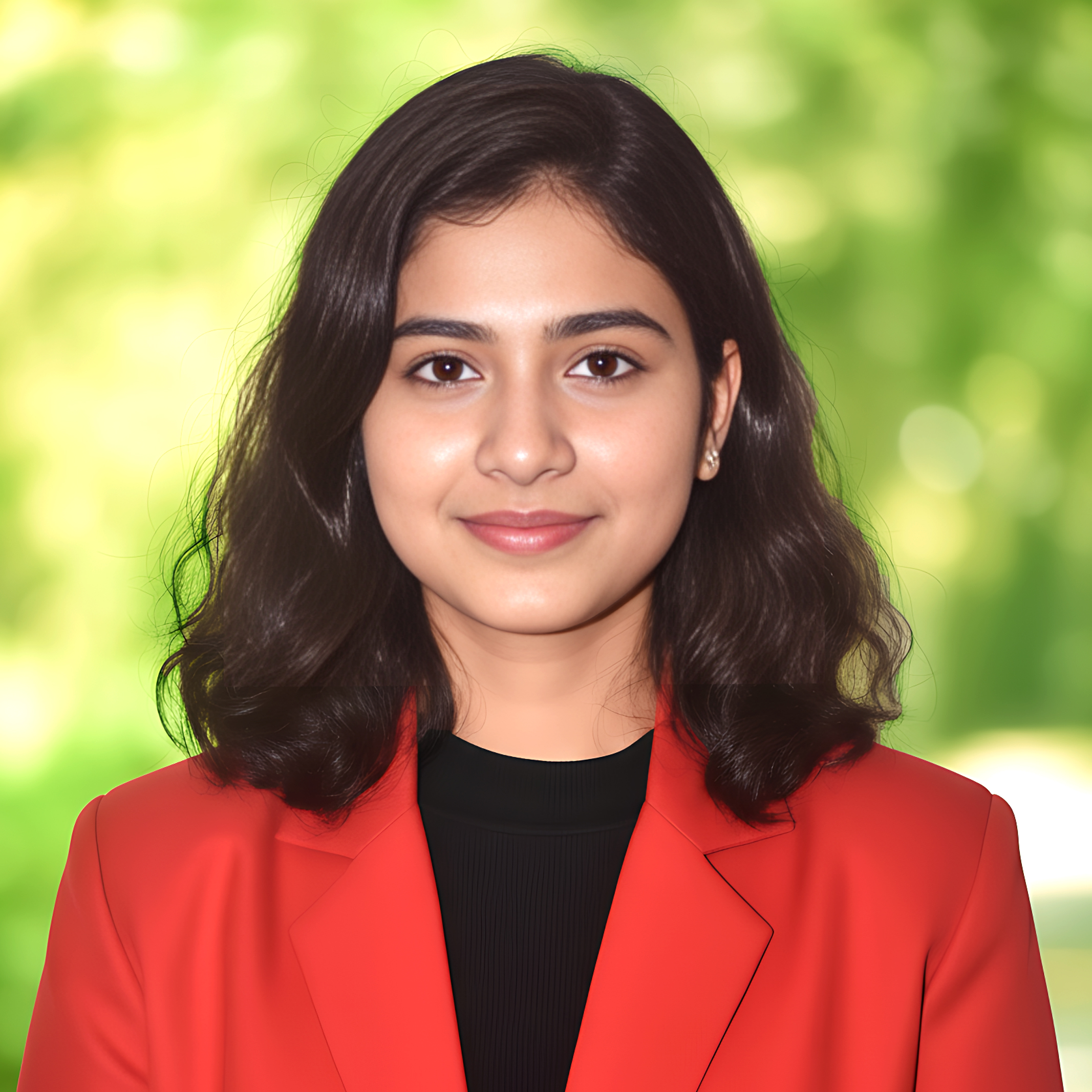DSSSB TGT English Syllabus 2025 post in DOE & NDMC demands a thorough understanding of the syllabus. This syllabus is comprehensive, covering classical literatures, modern writing, pedagogy, methodology, electives, and more. In this post, I outline the Scope, Content, and Outcomes (SCO), and then break down the major papers and methodology topics you need to master. Use this as your roadmap for study and lesson planning.
सभी अभ्यर्थियों को सूचित किया जाता है कि रिजल्ट, सिलेबस, आवेदन लिंक, एडमिट कार्ड व नोटिफिकेशन के सभी लिंक नीचे उपलब्ध हैं।
DSSSB (Delhi Subordinate Services Selection Board) TGT English exam is one of the most awaited teaching recruitment tests under the Department of Education (DoE) and NDMC. Every year, thousands of candidates apply to teach English at secondary level in Delhi government schools.
To crack this exam, understanding the detailed syllabus is the first and most crucial step. In this article, you’ll find the complete DSSSB TGT English Syllabus 2025, its scope, key papers, and teaching methodology topics — all in a clear, structured way.
SCO: Scope, Content & Learning Outcomes
DSSSB TGT English Syllabus 2025 Scope
- To test deep knowledge of English literature (from Indian classical to modern, world literatures, theory, criticism).
- To assess familiarity with teaching methodology, pedagogy, and educational theory specific to English.
- To evaluate ability to integrate literature, language, culture, and inclusive schooling in practice.
DSSSB TGT English Syllabus 2025 Content
- Core Literature Papers: 14 papers spanning Indian classical, Indian writing in English, British/European classical literatures, Romanticism, Modernism, women’s writing, postcolonial literatures, etc.
- Electives (Discipline-Centric & Generic): specialized topics like literary criticism, diaspora writing, media & communication, science fiction, cinema & literature, etc.
- Methodology / Pedagogy: learning & teaching, assessment, inclusive education, drama & arts in instruction, language across curriculum, curriculum theory.
- Language Skills / Communication / Composition: functional writing, creative writing, business & technical writing, media skills.
Intended Learning Outcomes
By the end of your preparation and, later, your training as a teacher, you should be able to:
- Read, analyze, and teach a broad range of texts (Indian, British, European, postcolonial).
- Apply theoretical frameworks (criticism, theory) in classroom discussion.
- Design lesson plans integrating literature and language.
- Conduct assessments that are fair, diagnostic, and growth oriented.
- Foster inclusive classrooms, recognizing diversity of learners, gender, multilingual backgrounds.
- Use drama, arts, performance in teaching literature and language.
- Communicate effectively in English: composition, media, technical writing.
1. Core Literature: Indian Classical Literature
- Genres & Texts: Sanskrit drama (e.g. Abhijnanashakuntalam), classical poetry (Kalidasa, Bhavabhuti), epics (Mahabharata, Ramayana)
- Features & Themes: rasa theory, alankar, dharma, myth & symbolism
- Critical issues: translation, reception, intertextuality
2. European Classical Literature
- Greek & Roman texts: e.g. Homer (Iliad, Odyssey), Aeschylus, Sophocles, Virgil
- Genres & forms: epic, tragedy, lyric
- Influence & legacy: how classical ideas shaped Western tradition and Indian reception
3. Indian Writing in English
- Key novelists, poets, dramatists (e.g. R. K. Narayan, Mulk Raj Anand, Kamala Das, Nissim Ezekiel, Arundhati Roy)
- Themes: identity, postcolonial consciousness, marginality, gender, region
- Style, narrative techniques, language hybridity
4. British Poetry & Drama: 14th to 17th Centuries
- Chaucer, Spenser, Shakespeare (tragedy, comedy, history), Marlowe, Donne, Milton
- Literary forms: sonnet, blank verse, dramatic genres, metaphysical poetry
- Historical context: Renaissance, Reformation, Elizabethan / Jacobean stages
5. American Literature: 18th Century
- Early American writings: colonial period, Puritan prose, early novels, political writing
- Authors: Benjamin Franklin, Thomas Paine, early American essays
- Themes: nationhood, identity, Enlightenment influence
6. Popular Literature
- Definition & scope: folklore, detective fiction, science fiction, mass-market reading
- Key authors & works: e.g. Arthur Conan Doyle, Agatha Christie, Jules Verne, modern bestsellers
- Critical perspective: canon vs. popular, reception, pedagogy of popular texts
7. British Poetry & Drama: 17th & 18th Centuries
- 17th Century: metaphysical poets, John Donne, John Milton
- 18th Century: Dryden, Pope, Johnson, Restoration drama, neoclassicism
- Poetic forms: heroic couplet, satire, mock-epic
8. British Literature: 18th Century
- The novel rises: Defoe, Richardson, Fielding, Sterne
- Enlightenment thought, social criticism, periodical essays
- Emergence of realism and sensibility
9. British Romantic Literature
- Major poets: Wordsworth, Coleridge, Keats, Shelley, Byron
- Key prose: Wuthering Heights, Frankenstein, Biographia Literaria
- Themes & concerns: nature, subjectivity, imagination, revolution, alienation
10. British Literature: 19th Century
- Victorian novelists: Dickens, Brontës, Eliot, Hardy
- Poetry: Tennyson, Browning, Arnold
- Social and historical concerns: industrialization, imperialism, gender, class
11. Women’s Writing
- Texts by women across periods (e.g. Aphra Behn, Jane Austen, Virginia Woolf, Toni Morrison, Kamala Das)
- Feminist theory, gender, voice, patriarchal critique
12. British Literature: The Early 20th Century
- Modernism: T. S. Eliot, Virginia Woolf, James Joyce (selected), W. B. Yeats
- Themes: fragmentation, alienation, stream of consciousness
13. Modern European Drama
- Ibsen, Chekhov, Brecht, Beckett, Sartre, Pirandello
- Drama forms: realism, absurd, theatre of the oppressed
14. Postcolonial Literatures
- Key regions: Africa, Caribbean, South Asia, Southeast Asia
- Important authors: Chinua Achebe, Ngũgĩ wa Thiong’o, Derek Walcott, Salman Rushdie
- Concepts: hybridity, mimicry, subaltern, colonial trauma
Discipline-Centric Electives (Select Few Examples)
- Literary Criticism & Theory: major schools (formalism, structuralism, poststructuralism, feminism, Marxism, deconstruction)
- Modern Indian Writing in English & Translation
- Literature of the Indian Diaspora
- Literature & Cinema: adaptation theory, intermediality
- Science Fiction & Detective Literature
- Partition Literature
- Research Methodology in English Studies
- World Literatures
Generic Electives & Language Skills
- Academic Writing & Composition: essays, reports, research writing
- Media & Communication Skills: journalism, digital media, mass communication
- Text & Performance: dramatization, reader’s theatre, spoken word
- Language & Linguistics: phonology, syntax, semantics, sociolinguistics
- Contemporary India: Women & Empowerment
- Language, Literature & Culture
- Readings on Indian Diversities & Literary Movements
Methodology / Teaching Education & Pedagogy
- Learning & Teaching: theories of learning (behaviorism, constructivism), learner types
- Language Across the Curriculum: integrating English in other subjects
- Understanding Discipline & Subject: nature of English as a subject, interdisciplinarity
- Gender, School & Society: gender equity, bias, school culture
- Pedagogy of School Subject (English): methods of teaching grammar, poetry, prose, drama
- Knowledge & Curriculum: curricular design, textbook evaluation
- Assessment for Learning: formative, summative, alternative assessments
- Creating an Inclusive School: Embracing Diversity through Language, Ability, and Culture
- Childhood & Growing Up: adolescent psychology, language development
- Drama & Art in Education: theater-based pedagogy, art integration
DSSSB TGT English Syllabus 2025 Conclusion
The DSSSB TGT English syllabus 2025 is vast but structured to develop both your literary expertise and teaching capability. Balancing literature and pedagogy is the key to scoring well. Focus equally on British and Indian writings, and practice teaching-based application questions. With consistent effort, conceptual clarity, and smart revision, you can easily excel in this paper and move one step closer to your dream teaching career in Delhi schools.
DSSSB TGT English Syllabus 2025 FAQSS
syllabus includes Indian Classical Literature, British Literature (14th–20th century), American and Postcolonial writings, along with pedagogy and teaching methodology based on B.Ed. concepts
There are 14 core literature papers, several discipline-centric electives, and teaching methodology topics related to education and learning.
Usually, 20–25% of the paper focuses on teaching-learning concepts, assessment, inclusive education, and classroom practices.
Scoring areas include British Poetry (Romantic & Victorian age), Women’s Writing, Postcolonial Literature, and Pedagogy of English.
4–6 months of consistent study with 3–4 hours daily is enough to cover all papers, pedagogy, and practice sets.
DSSSB provides an official syllabus PDF under “Indicative Syllabus for TGT English in DOE & NDMC” on dsssb.delhi.gov.in.


